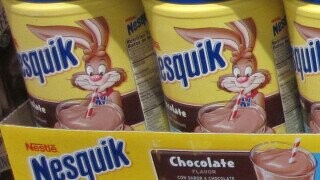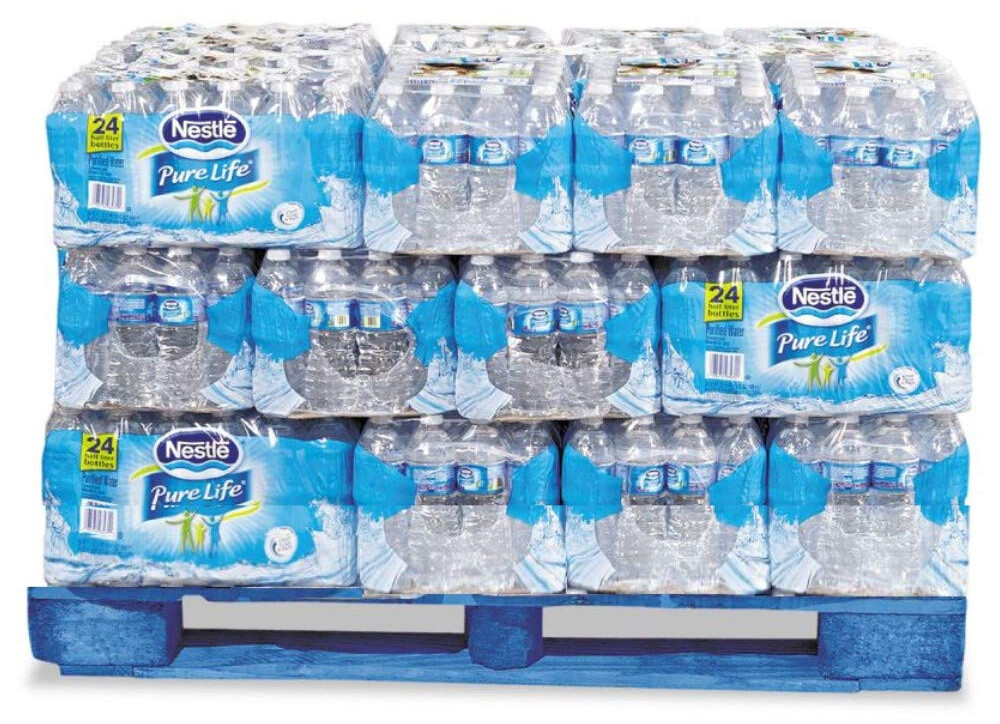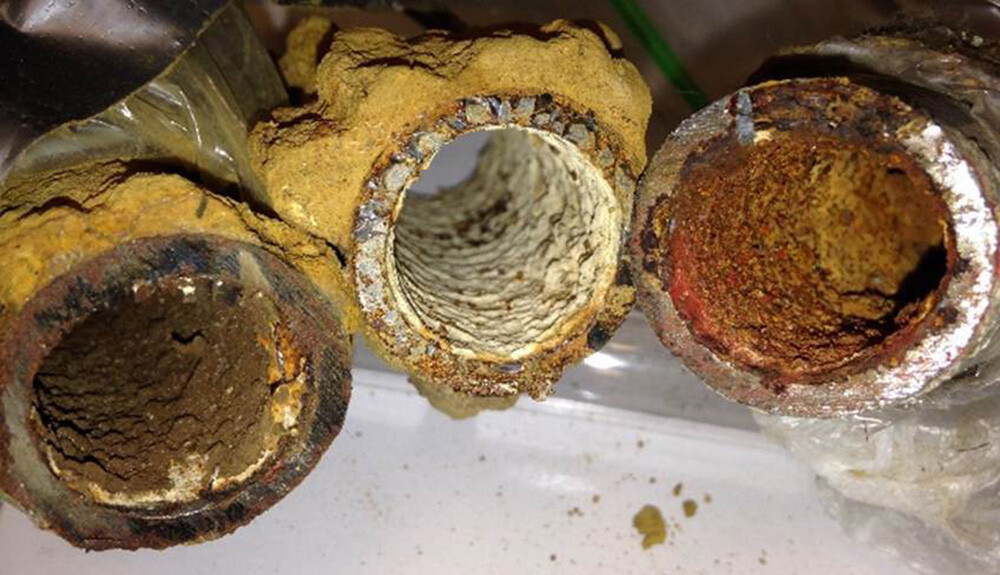4 Ways Nestlé Is An Evil Company

Everyone loves candy, and we're no different. So this week, Cracked is giving in to our sweet tooth and talking about all things candy.
Despite selling the rights to produce some of its more famous brands in the US, Nestlé is still one of the world's biggest candy companies. Meaning that people getting a Crunch, Kit Kats, or whatever at a movie theater snack bar outside the US are probably eating Nestlé. However, that Nestlé candy love also involves turning a blind eye to the truly atrocious practices of the Nestlé corporation ...
They Use Child Slave Labor
Don't Miss
Unless they're buying the fancy stuff with all those special seals, there's a good chance that when people around the world eat a chocolate bar, they're also biting into tasty, tasty child slave labor. Nestlé is, of course, not the only chocolate manufacturer to source its cocoa beans from ethically questionable suppliers, but as the largest food company in the world, it bears a somewhat outsize responsibility to ensure it's not exploiting children who spend their days swinging machetes, spraying pesticides, and carrying loads up to 100 lbs. for nearly nonexistent wages in West Africa.

In 2001, Nestlé joined the two other big bois of the chocolate world, Mars and Hershey, in a pledge to phase out just the "worst forms" of child labor within four years, but every time that deadline gets extended, they fail to meet it. They claim that it's simply impossible to figure out exactly which farms they get their stuff from, which is weird because there's apparently nothing stopping journalists from just walking onto random farms in West Africa, asking questions, and getting surprisingly honest answers. Also, the Fair Labor Association says they totally could.
In 2005, after they failed to meet their first deadline, they were sued by a group of children who claimed they were trafficked to the Ivory Coast from Mali for the purpose of working on cocoa plantations. In the end, the Supreme Court dismissed the case, but only because they determined that international practices couldn't be subjected to American laws. During the trial, Nestlé's lawyers argued that even the makers of the gas used by Nazis to murder Jews in concentration camps weren't held liable, so they certainly couldn't be. Pro-tip: If you ever find yourself invoking Nuremberg in your own defense, you're wrong.
Speaking of children …
Their Aggressive Marketing Of Infant Formula Killed Babies
You probably associate Nestlé mostly with chocolate, but they produce all kinds of foods, from coffee to baby formula, and it was their approach to marketing the latter that proved the company knew no bounds when it came to exploiting literal infants. In the '70s, Nestlé began sending representatives dressed as nurses to hospitals in impoverished countries, ostensibly to "assist" new mothers having difficulty with breastfeeding but actually to promote the company's baby formula. They even sent families home with their own shiny can of formula, free of charge. That might seem relatively innocent—sure, the whole "disguise" thing is pretty shady, but breastfeeding can be tricky business, so if parents opt-out and help themselves to a free sample, where's the harm?

The harm is mostly in the water that must be used to mix up the formula and clean the bottles, which wasn't safe in these areas, and many of the new parents targeted by Nestlé didn't have the facilities to boil water or even know that they needed to. It didn't help that the instructions on the cans were in English. (Of course, advertisements promoting formula as the modern baby-feeding method of choice were in the countries' local languages.) The formula was also expensive, so many families overdiluted it to make it last longer. It's not like they could just switch back to breastfeeding—by then, the babies were often so used to the formula that they'd refuse a boob and/or said boobs had dried up. The result was an estimated one million dead babies every year from malnutrition or diseases contracted from dirty water or bottles.
All of this led to massive boycotts in the late '70s and early '80s, forcing Nestlé to put the fake nurses out to pasture, but not before insisting that the real problem was access to clean water, and hey, did you know they also happen to sell bottled water? (Weirdly, this didn't stop them from pushing to declare clean water a "need" rather than a "right" at the 2000 World Water Forum.)

Nestlé
Over the ensuing years, the company has continued to fight off accusations of unethical international marketing of their infant formula, including some pretty undeniable ones. In 2017, six Nestlé employees were found guilty of bribing patient information out of Chinese hospital staff for the purposes of marketing their formula and went to prison. Incidentally, when China uncovered a formula manufacturing shortcut that killed even six babies, in which Nestlé was also implicated, a farmer and a dairy manager were freaking executed. They have their problems, but they take food safety very seriously.
They're Sucking The Earth Dry
Speaking of water, Nestlé's bottled water operations—the largest in the world—might be their shittiest. Literally. In Pakistan, water levels have sunk hundreds of feet since the company began sourcing its Pure Life bottled water there, and what's left for locals is often both deadly and gross.
Closer to home, where access to clean water is way better but doesn't come without its issues, while other companies moved their operations out of drought-ridden California, Nestlé's CEO said he would pump more out of the San Bernardino National Forest if he could. Nobody actually knows how much they draw from this source—which they've been doing without a permit since 1988, paying only $524 a year to bypass the requirement—but estimates place it at about a billion gallons a year. Meanwhile, during the Flint water crisis, Nestlé paid only $200 a year to pump hundreds of thousands of bottles' worth out of a nearby reserve.

That's not the only way Nestlé bottled water is effing the environment. In 2008, the company admitted that most of its bottles aren't recycled even while they flooded the market with advertisements claiming the opposite. After so much controversy, the company has largely divested from its North American water-bottling hustle, focusing instead on its international operations like Brazil (where they illegally source their Perrier brand) and China (where water scarcity thanks to pollution and, you know, Nestlé sucking up what's left has forced the public to rely on bottled water). Don't worry; the awful systems they built are still in place. It's just not Nestlé's problem anymore.
They Work With Dictators
You'd think openly supporting and colluding with dictators would be a Kit Kat too far for even the evilest corporation, but in 2009, word got out that Nestlé was buying a whopping 15% of its milk from a farm owned by the wife of Robert Mugabe, then-president of Zimbabwe and famous not good dude. The farm had actually been illegally seized by the Mugabe regime as Zimbabwe's economy collapsed and the Mugabes bought their 34th castle, but hey, the people gotta have their Nesquik.
More recently, human rights groups have called for Nestlé to stop buying advertising on state-controlled media in Belarus, home to "Europe's last dictatorship," and where one out of every three commercials on state television promotes a Nestlé product. This isn't your average propaganda—this is a network where political dissidents are routinely coerced into forced confessions on the air, sponsored by Nestlé.

Nestlé
Top image: BrokenSphere/Wiki Commons
